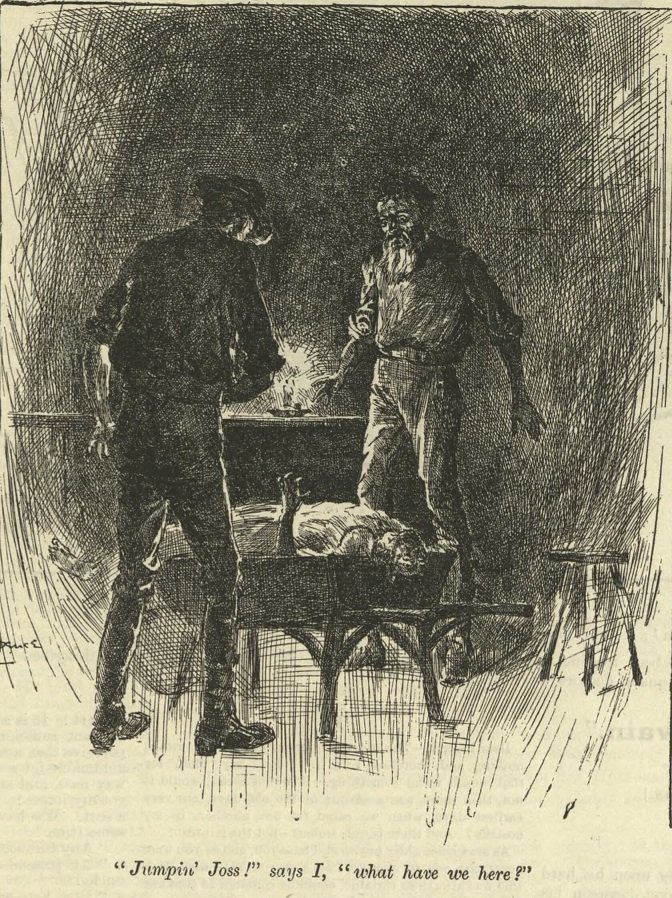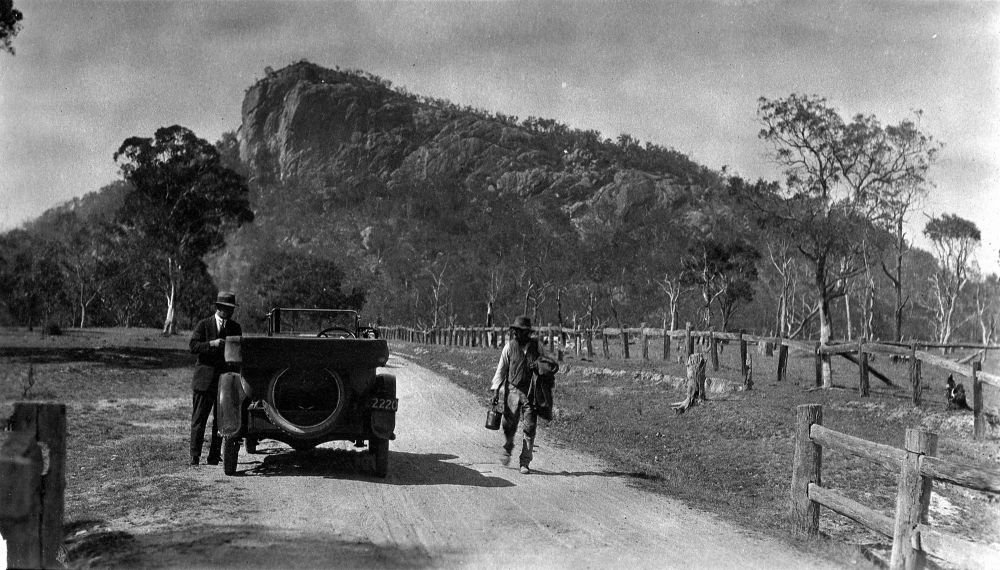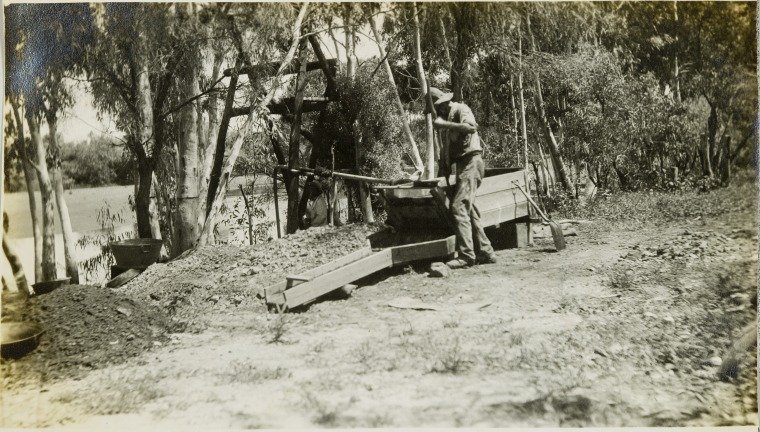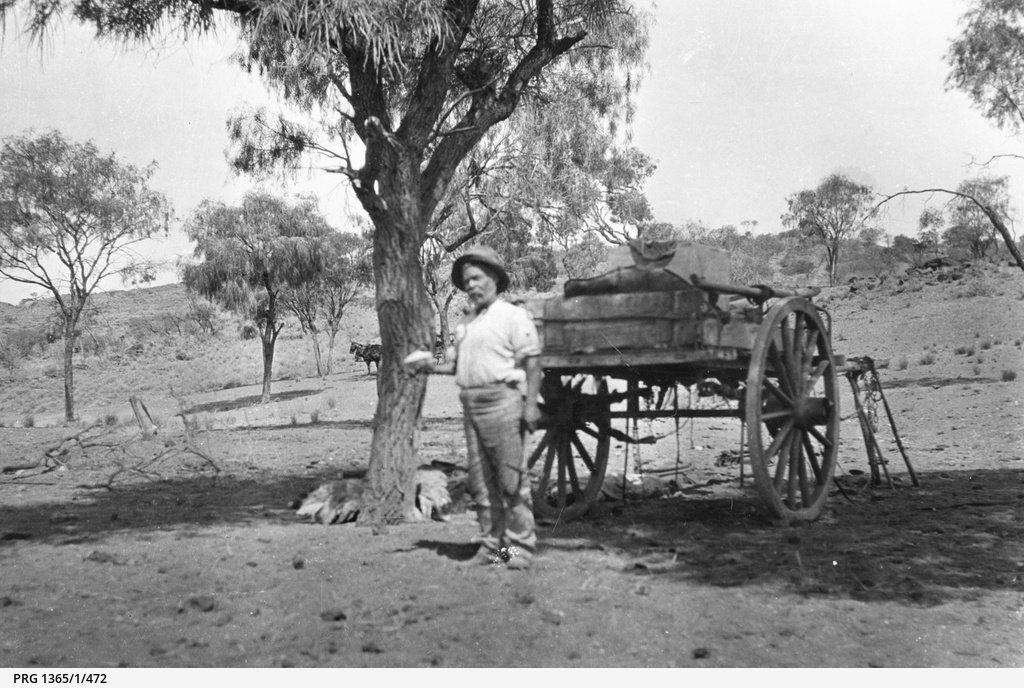THE STOLEN SHEEP
[FOR THE BULLETIN.]
Say, mate, its a tidy long stretch since we parted near old Lambin Flat; Twenty years? - Yes, I reckon it is, and a sprinklin of odd uns on that. Lets seeafter you with the lightlve a fancy twas sometime about A day or so after the time old Tommy the butcher pegged out. What ! dont you remember old Tommy? Why all on the diggins knew him Had a butchery down the main Creek, pretty nigh to the Companys whim ; A small, wizened runt of a man like a shrivelled up scrap of green-hideI thought you would call him to minddid they ever find out how he died ? No ? never got trace of his carcase from that day to this. Umphthats queer, But I fancy theres one man about who could soon make the mystery clear.
Foul play ?hmwell no, not exactly, that is if its murder you mean ; But as cheesey a case for a corner as ever Ned Tucker has seen. Prhaps now you would-nt believe that I helped to put Tommy away, Oh, you neednt be starin like that though you feel a bit shocked, I dare say. But listen: Its safe now, I reckon, to let the cat out of the bag, And I know you of yore pretty well as a fellow not given to nag.
Well, you see twas on old Possum Flat we were workin, Jim Clinton and I Both lime-burners right from the start, so, of course, it was Root, hog or die ; But after a-bottomin duffers for five or six weeks at a spell We were not only down at the mouth but were down at the heel, mate, as well. Not a scrap in the tucker-bag left, and not even the price of a feed, With our credit all stopped at the stores and no friend to be found in our need, And the hunger a-gnawin our inards and givin us rats all the day, Though we pulled in our belts a bit tighter a-thinkin to ease it that way. So at last we got puzzlin our wits bout makin a rise in the dark ; And of all other men we considered old Tommy our easiest mark.
We didnt half relish the notion, and there was, you may safely depend, A fight betwixt hunger and conscience, but conscience gave up in the end. So we laid both our noddles together and faked up a dodge pretty slick. To wait on the butcher that evenin with an order for muttonon tick Thats to put a good face on it, matey. How somever, one part of our plan Was to borrow a small-wheeled toboggan from a cove that they called Curly Dan. You recollect Dan, I suppose?a short, stiff- built style of a chap, Who used to hawk cow-heel and tripe in a queer little box of a trap. Well, the dead of the night found us there with the barrow all ready at hand. And our hearts goin thumpity-thump, that shaky we scarcely could stand. we hadnt much trouble in forcin and enterin into his den As you know, they werent over-perticler about their door-fastenins then So in I goes, clawin and gropin, whilst Clinton kept watch in the street, And it seemed that each carcase and quarter was wrapped in a calico sheet. I didnt stand pickin and choosin to get at the best in the stall, But made a wild grab for the nearest and lugged it away, hook and all, And staggerin, half-starved as I was, with the slippery load on my back, I slung it down flop in the cart and we trundled away down the track.
It was not till we reached the old tent that we ventured to peep at our prize Iv seen some queer things in my travels, but never a worse met my eyes. Ugh ! it makes me feel all of a creep when I think of the horrible sight. Jumpin Joss! says I, what have we here? when a puff o wind blows out the light. And there I stands shakin and quakin, whilst Jim was knocked all of a heap, For the thing that we saw in the barrow was not in the form of a sheep. No ; but there in a greasy old night-shirt that covered him down to his toes, With a rope round his thin, stringy neck, and all blue at the gills and the nose, And his eyes like the eyes of a grasshopper, a startin right out of his head.
Lay the scraggy old scrubber himself, lad, was Tommy, the butcher, stark dead. There was nothin else for it, of course, but to plant his old carcase and slide, But as neither of us had the stummick to handle his cold, clammy hide. We backed the cart up to a shaft, and just tilted him in neck-and-crop And never cried crack till wed shovelled a cartload of mullock on top. Then we run the truck into the scrub, packed our blueys and went on a tower, Jumpin' Joss!" says I, what have we here? And paid all our debts with the storekeeps at the rate of about five mile an hour ; But the devil knows how wed have fared if we hadn't met you on the way Andwell that was the end of old Tommy; so heres to his ashes I say !
Richmond, Vic.
TOM FREEMAN.
CHRISTMAS NUMBER OF THE BULLETIN Vol. 11 No. 618 (19 Dec 1891)
https://nla.gov.au/nla.obj-488979849

[FOR THE BULLETIN.]
Say, mate, its a tidy long stretch since we parted near old Lambin Flat; Twenty years? - Yes, I reckon it is, and a sprinklin of odd uns on that. Lets seeafter you with the lightlve a fancy twas sometime about A day or so after the time old Tommy the butcher pegged out. What ! dont you remember old Tommy? Why all on the diggins knew him Had a butchery down the main Creek, pretty nigh to the Companys whim ; A small, wizened runt of a man like a shrivelled up scrap of green-hideI thought you would call him to minddid they ever find out how he died ? No ? never got trace of his carcase from that day to this. Umphthats queer, But I fancy theres one man about who could soon make the mystery clear.
Foul play ?hmwell no, not exactly, that is if its murder you mean ; But as cheesey a case for a corner as ever Ned Tucker has seen. Prhaps now you would-nt believe that I helped to put Tommy away, Oh, you neednt be starin like that though you feel a bit shocked, I dare say. But listen: Its safe now, I reckon, to let the cat out of the bag, And I know you of yore pretty well as a fellow not given to nag.
Well, you see twas on old Possum Flat we were workin, Jim Clinton and I Both lime-burners right from the start, so, of course, it was Root, hog or die ; But after a-bottomin duffers for five or six weeks at a spell We were not only down at the mouth but were down at the heel, mate, as well. Not a scrap in the tucker-bag left, and not even the price of a feed, With our credit all stopped at the stores and no friend to be found in our need, And the hunger a-gnawin our inards and givin us rats all the day, Though we pulled in our belts a bit tighter a-thinkin to ease it that way. So at last we got puzzlin our wits bout makin a rise in the dark ; And of all other men we considered old Tommy our easiest mark.
We didnt half relish the notion, and there was, you may safely depend, A fight betwixt hunger and conscience, but conscience gave up in the end. So we laid both our noddles together and faked up a dodge pretty slick. To wait on the butcher that evenin with an order for muttonon tick Thats to put a good face on it, matey. How somever, one part of our plan Was to borrow a small-wheeled toboggan from a cove that they called Curly Dan. You recollect Dan, I suppose?a short, stiff- built style of a chap, Who used to hawk cow-heel and tripe in a queer little box of a trap. Well, the dead of the night found us there with the barrow all ready at hand. And our hearts goin thumpity-thump, that shaky we scarcely could stand. we hadnt much trouble in forcin and enterin into his den As you know, they werent over-perticler about their door-fastenins then So in I goes, clawin and gropin, whilst Clinton kept watch in the street, And it seemed that each carcase and quarter was wrapped in a calico sheet. I didnt stand pickin and choosin to get at the best in the stall, But made a wild grab for the nearest and lugged it away, hook and all, And staggerin, half-starved as I was, with the slippery load on my back, I slung it down flop in the cart and we trundled away down the track.
It was not till we reached the old tent that we ventured to peep at our prize Iv seen some queer things in my travels, but never a worse met my eyes. Ugh ! it makes me feel all of a creep when I think of the horrible sight. Jumpin Joss! says I, what have we here? when a puff o wind blows out the light. And there I stands shakin and quakin, whilst Jim was knocked all of a heap, For the thing that we saw in the barrow was not in the form of a sheep. No ; but there in a greasy old night-shirt that covered him down to his toes, With a rope round his thin, stringy neck, and all blue at the gills and the nose, And his eyes like the eyes of a grasshopper, a startin right out of his head.
Lay the scraggy old scrubber himself, lad, was Tommy, the butcher, stark dead. There was nothin else for it, of course, but to plant his old carcase and slide, But as neither of us had the stummick to handle his cold, clammy hide. We backed the cart up to a shaft, and just tilted him in neck-and-crop And never cried crack till wed shovelled a cartload of mullock on top. Then we run the truck into the scrub, packed our blueys and went on a tower, Jumpin' Joss!" says I, what have we here? And paid all our debts with the storekeeps at the rate of about five mile an hour ; But the devil knows how wed have fared if we hadn't met you on the way Andwell that was the end of old Tommy; so heres to his ashes I say !
Richmond, Vic.
TOM FREEMAN.
CHRISTMAS NUMBER OF THE BULLETIN Vol. 11 No. 618 (19 Dec 1891)
https://nla.gov.au/nla.obj-488979849








